If your dog is sneezing and coughing, it could be due to various reasons such as allergies, infections, or even foreign objects stuck in their nose or throat. While occasional sneezing and coughing are generally normal, persistent symptoms may require a vet’s attention. Keeping your pet up-to-date on vaccinations and regular check-ups can help prevent serious issues.
Estimated reading time: 9 minutes
You’re sitting on the couch, enjoying some quiet time, when suddenly your dog starts to cough or sneeze. Your heart skips a beat. You wonder, is it just a random thing or is there a real reason to worry? Understanding why your dog is sneezing and coughing can put your mind at ease. So, let’s dive into some common reasons and what you can do about them.
Common Causes of Dog Sneezing and Coughing
When you notice your pet coughing or sneezing, it’s important to take notice and figure out what might be causing it. After all, these are both reflexive actions that can be caused by a number of different things. Here are some common causes:
Allergies
Just like humans, dogs can suffer from allergies. One of the most common signs of allergies in dogs is sneezing and/or coughing. If you notice your dog sneezing and/or coughing more during certain times of the year (like when pollen is high), it’s likely that he’s suffering from allergies. If you think your dog’s sneezing and coughing might be due to allergies, talk to your veterinarian. They can help you figure out if allergies are the root cause and, if so, what you can do to help your dog feel better.
Upper Respiratory Infection (Kennel Cough)
Respiratory infections are common in dogs and can cause coughing and sneezing. If your dog is also running a fever, has a decreased appetite, and seems lethargic, it may be a sign they have a respiratory infection and you should take them to the vet. Respiratory infections are usually treated with antibiotics and your dog should start feeling better within a week or two.
Kennel cough is a highly contagious respiratory infection that is common in dogs who spend time in kennels or other close quarters with other dogs. If your dog has been coughing and sneezing more after spending time at a kennel, it’s likely they have contracted kennel cough.
Kennel cough is treatable and your dog should start feeling better within a week or two, but in the meantime, he can be contagious to other dogs. So, if you have more than one dog, it’s important to keep them separated until your dog is no longer contagious.
Canine Influenza
Just like the flu that humans get, there is a version that can infect dogs too. Canine influenza is a highly contagious virus that is most commonly seen in shelters, kennels, doggy daycares, and other places where dogs interact closely with each other. Puppies and older dogs are especially susceptible.
The virus can cause a cough and sneezing, as well as a fever, runny nose, and watery eyes. If your dog is showing any of these signs, schedule an appointment with your local veterinarian right away.
Canine Distemper
Canine distemper is a serious illness that affects dogs. This virus attacks the respiratory, digestive, and nervous systems all at once. If your dog starts coughing, has nasal discharge, and acts really tired, he might have caught this virus.
Vaccination offers the best protection, so make sure to keep your dog’s shots up-to-date. And if you suspect that your dog has distemper, take him to the animal hospital right away. Quick action can make a big difference in your pet’s recovery.
Foreign Body
If your dog is suddenly sneezing a lot and you can’t figure out why, it’s possible that he has a foreign body lodged in his nose. This is more common in dogs with long noses (like hounds), but can happen to any breed of dog. If you think your dog might have a foreign body in his nose, take him to the vet so they can check it out.
It’s also possible that your dog is sneezing more because they have something stuck in their throat. If this is the case, they’ll probably also be coughing and gagging. If you think your dog might have something stuck in their airway, do not try to remove it yourself. Take them to the vet so they can safely remove whatever is causing the obstruction.
Bulldogs and Pugs
Both of these breeds are prone to a condition called brachycephalic airway syndrome, which means they have narrow nostrils and short throats. This can make it difficult for them to breathe, and they are also more likely to develop a condition called tracheal collapse, in which the trachea (windpipe) collapses.
Coughing and sneezing are often caused by an irritant, such as dust, pollen, or smoke. In Bulldogs and Pugs, however, they can also be caused by the anatomic structure of the airway. Because of their narrow nostrils and short throats, Bulldogs and Pugs are more likely to develop reverse sneezing episodes.
During a reverse sneeze, the dog’s soft palate is pulled backward and the trachea is constricted. This can cause a loud honking noise and can be quite frightening for the dog (and his owner)!
Reverse sneezing episodes usually resolve on their own, but if your dog is having multiple episodes or if he seems to be in distress, it’s important to see your veterinarian. In some cases, reverse sneezing can be a sign of an underlying health problem, such as allergies, a foreign body in the nose, or a fungal infection.
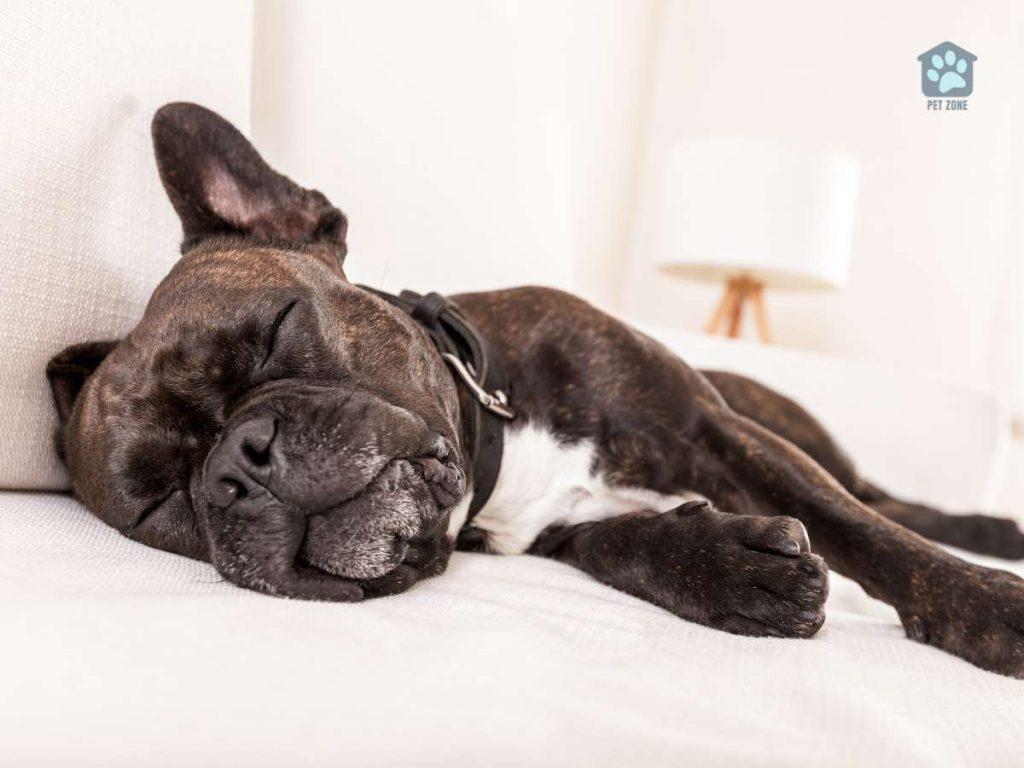
Preventing Dog Sneezing and Coughing
Sneezing and coughing are both common dog health problems. While sneezing is usually just a nuisance, coughing can be a sign of a more serious problem. Either way, it’s important to try to prevent your dog from sneezing and coughing whenever possible.
One of the most common causes of sneezing and coughing in dogs is an allergy to something in their environment. If your dog is sneezing and coughing regularly, take a look at his surroundings and see if there’s anything that could be triggering their allergies. Dust, pollen, and mold are all common triggers for sneezing and coughing in dogs.
If you think your dog’s sneezing and coughing might be caused by an allergy, talk to your vet. They can help you figure out what’s causing the problem and recommend the best course of treatment.
There are a few things you can do to help prevent your dog from getting a respiratory infection. Make sure he’s up to date on his vaccinations, and avoid letting him come into contact with other sick dogs. If you’re not sure if your dog is sick, it’s always better to err on the side of caution and keep him away from other dogs.
Finally, one of the most important things you can do to prevent your dog from sneezing and coughing is to keep their environment clean. Regularly vacuum and dust your home, and wash your dog’s bedding frequently.
If you have a backyard, make sure it’s free of debris that could trigger allergies. Keeping your dog’s environment clean will go a long way towards preventing sneezing and coughing.
Home Remedies for Dog Sneezing and Coughing
If your dog is sneezing and coughing, there are a few home remedies you can try to help ease their symptoms. First, make sure your dog has plenty of fresh water to drink. You can also try adding a bit of honey to their water, as honey has natural antimicrobial properties.
If your dog is still coughing after drinking lots of water, you can try giving them a teaspoon of apple cider vinegar mixed with water. Some people also believe that feeding their dog a raw diet can help to reduce sneezing and coughing, as the raw food contains more nutrients and enzymes that can help boost the immune system.
If your dog’s coughing is due to Kennel Cough, you can try using a humidifier in their room to help loosen the mucus in their throat. You can also give them small amounts of honey to help soothe their throat.
When to Take Your Dog to the Vet
If your dog’s sneezing and coughing persists, or if they start to show any other signs of illness, such as fever, lethargy, or loss of appetite, then it’s best to take them to the vet to get checked out.
In the meantime, try to keep your dog calm and comfortable, and don’t let them exert themselves too much as this can make their symptoms worse.
If your dog is coughing, but not sneezing, it could be a sign of something else. For example, if your dog is coughing and gagging, he may have a foreign body lodged in his throat. This is a serious condition and requires immediate veterinary care.
If your dog is coughing and wheezing, it could be a sign of asthma or another respiratory condition. These conditions can be managed by a vet, but it’s important to get your dog to the vet as soon as possible so that he can start treatment.
If you’re not sure whether or not your dog’s symptoms are serious, it’s better to err on the side of caution and take him to the vet. Your vet will be able to determine whether or not your dog’s symptoms are cause for concern and provide the appropriate treatment.
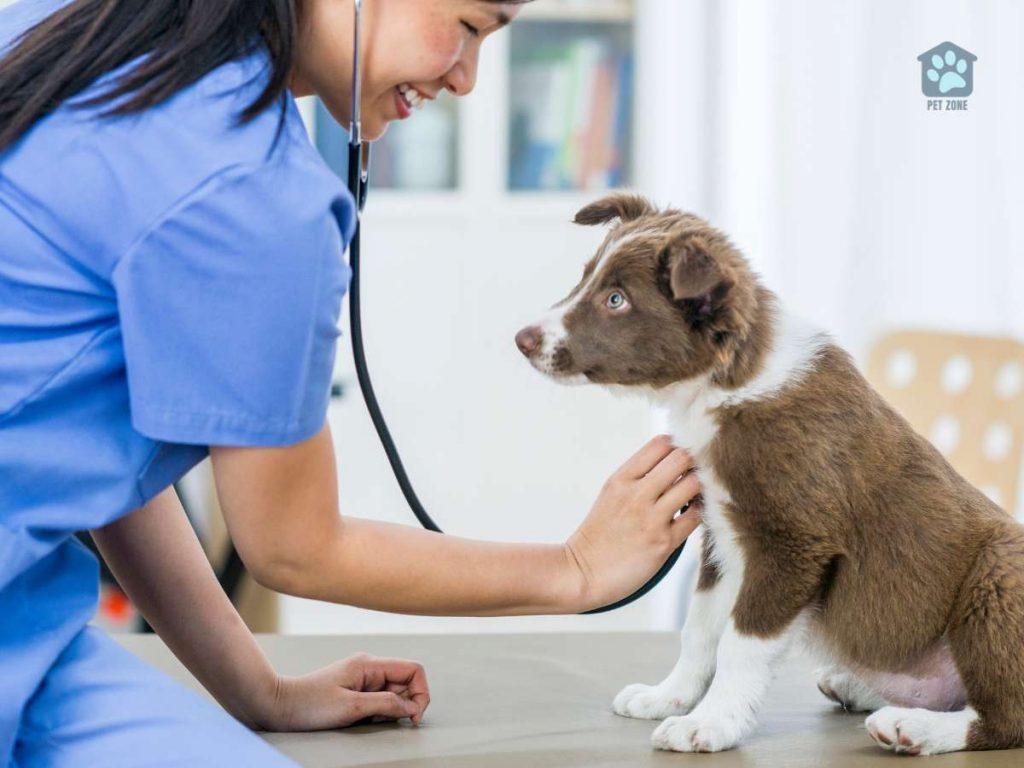
Key Takeaways on Dog Sneezing and Coughing
Just like humans, dogs can sneeze and cough for a variety of reasons. Typically, sneezing is caused by allergies or a foreign object in the nose, while coughing is usually the result of Kennel Cough or another respiratory infection. However, both sneezing and coughing can also be caused by something as simple as a cold or the flu.
If your dog is sneezing or coughing, it’s important to pay attention to other symptoms they may be experiencing. For example, if your dog is also vomiting, has a fever, or is having difficulty breathing, this could be a sign of a more serious condition and you should make an appointment with your veterinarian right away.
In general, it’s important to keep an eye on your dog if they’re sneezing or coughing. If the sneezing or coughing persists for more than a few days, or if your dog is showing any other signs of illness, make an appointment with your veterinarian.
Please feel free to leave your comments below and share this article with other pet owners who might find it helpful!
As an Amazon Associate I earn from qualifying purchases.
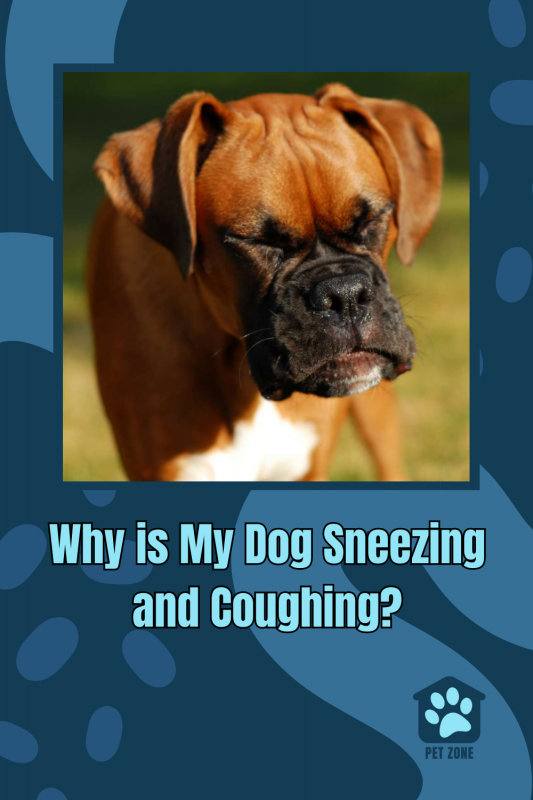



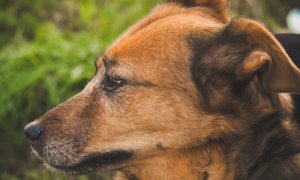
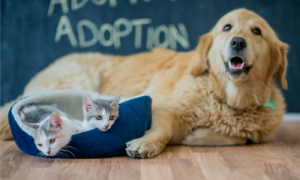

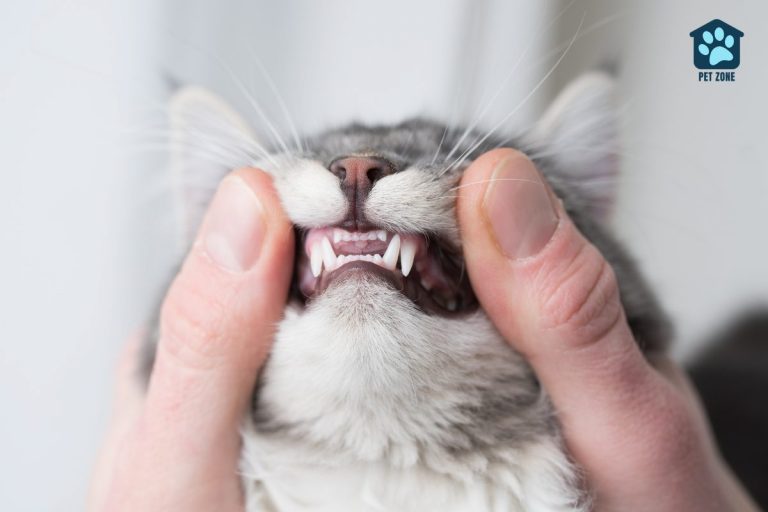


Our chocolate lab sneezes when he’s excited. Always done it and he’s 10 years old now.
I always feel so bad when my pup in under the weather. This post is helpful to figure out what might have caused her symptoms.
We are always so concerned with foxtail on our walks! Whenever our doggy starts sneezing on walks, we stop and take a look. Just to make sure nothing is in his nose. Now, to be fair, our dog does seem to seek out places where dry foxtail is…for some reason…